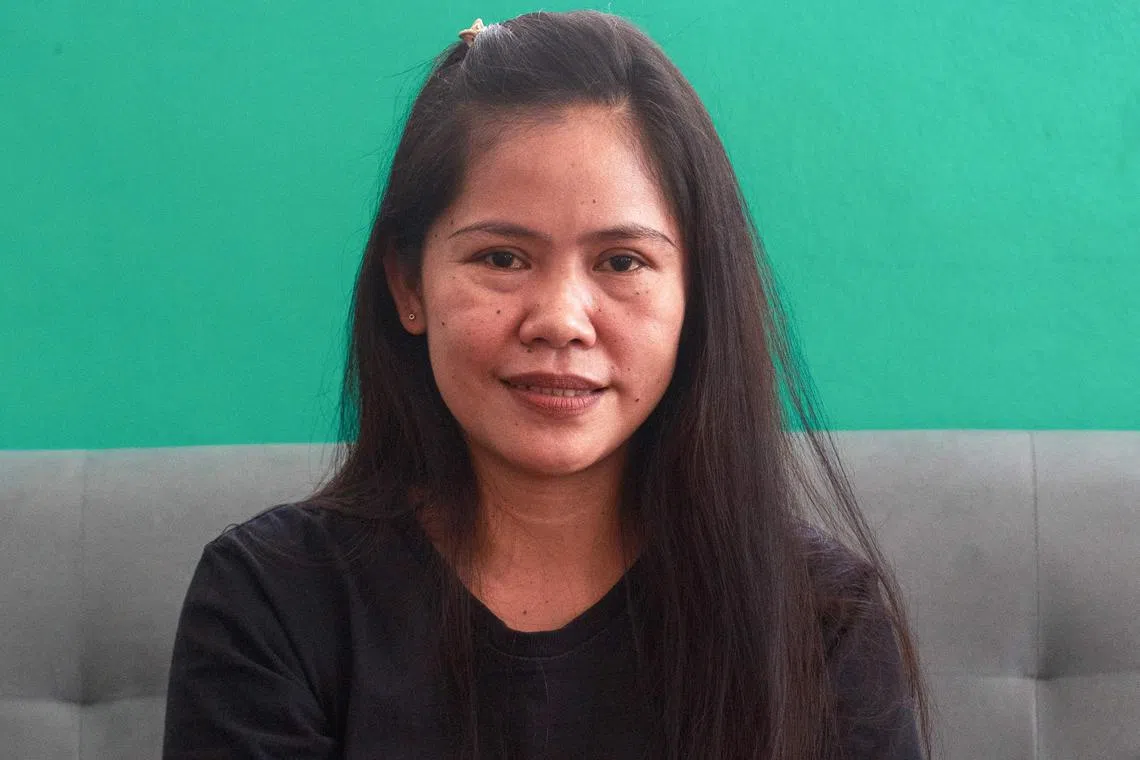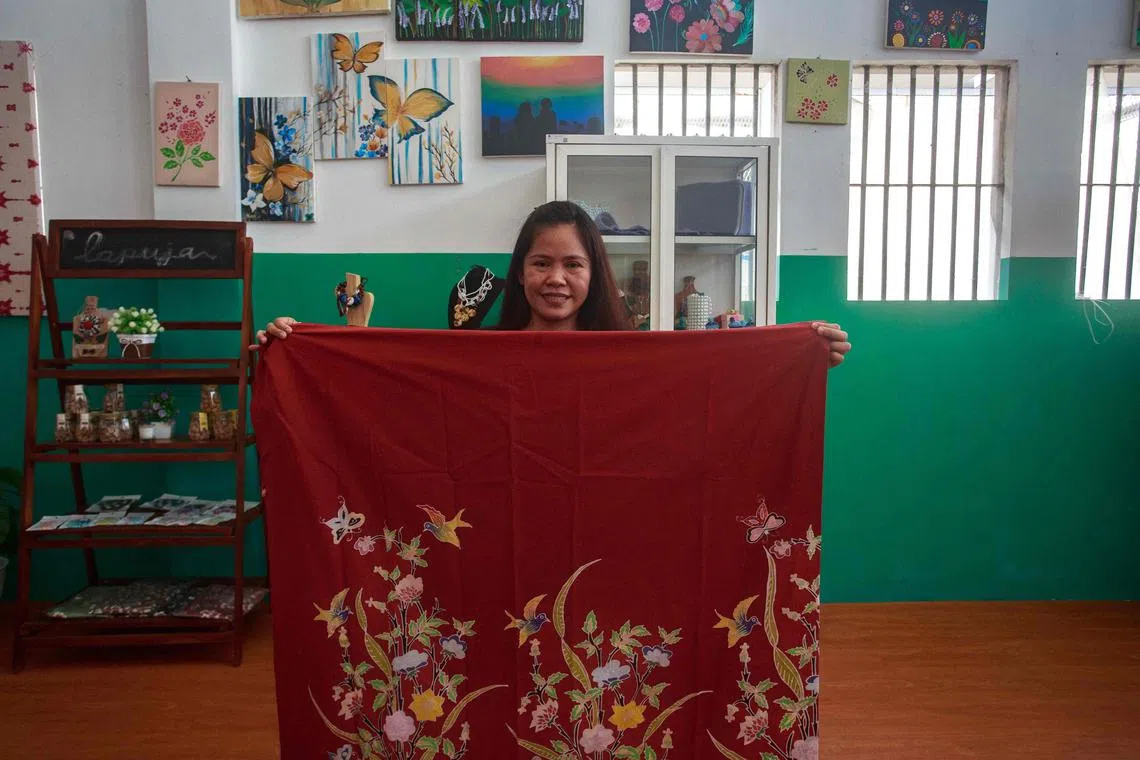Filipina on Indonesia death row says planned transfer back to Philippines a ‘miracle’
Sign up now: Get ST's newsletters delivered to your inbox

Mary Jane Veloso has been on death row in Indonesia since 2010 on a drug trafficking conviction.
PHOTO: AFP
Follow topic:
JAKARTA – A Filipina inmate on death row in Indonesia said on Dec 13 her planned transfer to the Philippines was a “miracle”, in her first interview since Manila and Jakarta signed an agreement last week to repatriate her.
Mother-of-two Mary Jane Veloso, 39, was arrested and sentenced to death in 2010 after the suitcase she was carrying was found to be lined with 2.6kg of heroin in a case that sparked uproar in the Philippines.
Both she and her supporters claim she was duped by an international drug syndicate. In 2015, she narrowly escaped execution after her suspected recruiter was arrested.
“This is a miracle because, honestly, even now, it still feels like a dream. Every morning when I wake up, I think about my aspirations, aspirations that I never had any certainty about,” she said when asked about the decision.
“That’s why I always prayed to God, ‘Lord, I only ask for one chance to go home and be with my family.’ And God answered that prayer.”
Last week, Indonesia’s Senior Law and Human Rights Minister Yusril Ihza Mahendra said a “practical arrangement”
He said her transfer could happen “around Dec 20” before Christmas, and that he had heard her death penalty would be reduced to life imprisonment.
Veloso’s case sparked outrage in the Philippines, with rallies of support and world boxing superstar Manny Pacquiao pleading for her life.
Her supporters said she was headed to work as a maid when she was arrested in Indonesia.
She now dreams of being reunited with her family after 14 years in prison, and wants to advocate other women if released.
“What I’m certain about is my first priority: focusing on my family,” she said.
‘Happiness’
Veloso said she has had feelings of “happiness” since hearing news of the repatriation agreement.
“After almost 15 years, that is what I am waiting for... I can go home to my country,” she said.
“I need to prepare mentally to face it all, to face my family, to face everybody out there.”
Veloso’s family is due to arrive next week on central Java island where she is being held, with a Christmas farewell party organised for her, an Indonesian official told Agence France-Presse.
Her mother, Mrs Celia Veloso, 65, called for Philippine President Ferdinand Marcos Jr to grant her clemency so she can spend Christmas with her family.
“We are excited to finally be with my daughter,” she said on Dec 13. “Her two kids are pining to be with her too.”
Veloso said she has learned how to play volleyball in prison, and showed off traditional Indonesian batik clothing she has made.
She said she would give as a gift a butterfly painting to the prison, symbolising her transformation.
“I was once like a caterpillar – unwanted, looked down upon,” she said.
“But, through this painful process, I’ve grown into who I am today: a butterfly, reborn and ready to face a colourful future.”

Mary Jane Veloso says she has learned how to make Indonesian batik prints while serving time at a prison in Indonesia.
PHOTO: AFP
French, Australian detainees
An official in Indonesia’s Coordinating Law, Human Rights, Immigration and Corrections Ministry said the government was “still preparing everything” for Veloso’s transfer.
The agreement states the execution of Veloso’s sentence upon return to the Philippines “will be governed by Philippine laws”, with Manila given the authority to grant her clemency.
The Philippine presidential office did not immediately respond to a request for comment.
Discussions over the transfer of other high-profile detainees include Frenchman Serge Atlaoui
Jakarta is also in talks with Australia over the release of the five remaining members of Australia’s “Bali Nine”
Muslim-majority Indonesia has some of the world’s toughest drug laws and has executed foreigners in the past.
At least 530 people were on death row there, mostly for drug-related crimes, according to data from rights group KontraS, citing official figures.
As at early November, 96 foreigners were on death row in Indonesia, all on drug charges, according to data from the Ministry of Immigration and Corrections.
Despite the ongoing negotiation for prisoner transfers, the Indonesian government gave the signal last week that it would resume the executions – on hiatus since 2016 – of drug convicts on death row. AFP

